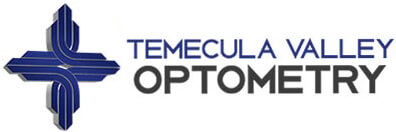Vision Therapy Explained
 At Temecula Valley Optometry, we provide vision therapy for a broad range of non-refractive vision problems. In order for our vision therapy sessions to be as effective as possible, we will customize treatment to address your child’s specific condition. If you suspect that your child has a vision-related learning problem or developmental delay, the first step is to schedule a comprehensive eye exam with our professional optometrist, Dr. Alan Winkelstein.
At Temecula Valley Optometry, we provide vision therapy for a broad range of non-refractive vision problems. In order for our vision therapy sessions to be as effective as possible, we will customize treatment to address your child’s specific condition. If you suspect that your child has a vision-related learning problem or developmental delay, the first step is to schedule a comprehensive eye exam with our professional optometrist, Dr. Alan Winkelstein.
In our conveniently located Temecula, CA, office, Dr. Winkelstein will evaluate your child’s eyes to determine whether or not vision therapy could be beneficial. After an accurate diagnosis is made, we will prescribe the most appropriate exercises and developmental vision therapy program. We treat new and returning patients in our Temecula, CA, office, situated in the Palomar Village Shopping Center, with easy access from Murrieta. To discuss your child’s need or candidacy for specialized vision therapy by our expert eye doctor, please contact us for an appointment today!
We know that you probably have many questions about vision therapy. For more information, read the following introductory information that our Temecula Valley Optometry eye care professionals have prepared for you.
Q & A about Vision Therapy
Q: Can vision therapy cancel your need for eyeglasses or contact lenses?
A: No. Vision therapy does not work to reduce refractive errors or eliminate your need for prescription eyewear. You may be familiar with some self-help programs that promise to enable you to toss your eyeglasses aside. However, no scientific evidence supports these claims, and most medical professionals agree that they are just sensationalist hype.
Q: Is there scientific evidence that demonstrates the effectiveness of vision therapy?
A: Yes. The American Optometric Association (AOA) approves the use of vision therapy as a treatment for non-refractive vision conditions. Many scientific studies have shown the positive results of vision therapy when practiced by a qualified optometrist (sometimes referred to as a “behavioral optometrist”).
Q: Is all vision therapy the same?
A: No. To make the most of vision therapy, the eye exercises and activities must be customized to help resolve the specific problem exhibited by your child. For example, if the child is diagnosed with lazy eye, therapy in our Temecula, CA, clinic often involves patching the strong eye in order to develop stronger visual acuity in the weak eye. Your child will also be assigned visual tasks or other simulation exercises to do. Once vision quality is improved in the weaker eye, therapy sessions may then implement eye teaming exercises to build better, more comfortable vision and improved depth perception.
Q: Does vision therapy correct learning disabilities?
A: No. Vision therapy is not a cure to fix learning disabilities. Yet children who suffer from a vision-related learning problem may benefit significantly from vision therapy. This is because vision therapy is often able to rectify underlying vision problems that may be causing difficulty with learning. Once a problematic vision condition is diagnosed and treated, many children show improvement with their ability to learn. It’s important to tell Dr. Winkelstein if your child has been diagnosed with any type of learning challenge.
If you suspect that your child may have a vision-related learning disorder, don’t delay!
Contact us at Temecula Valley Optometry for a Pediatric Eye Exam
and to discuss Vision Therapy for your child.
